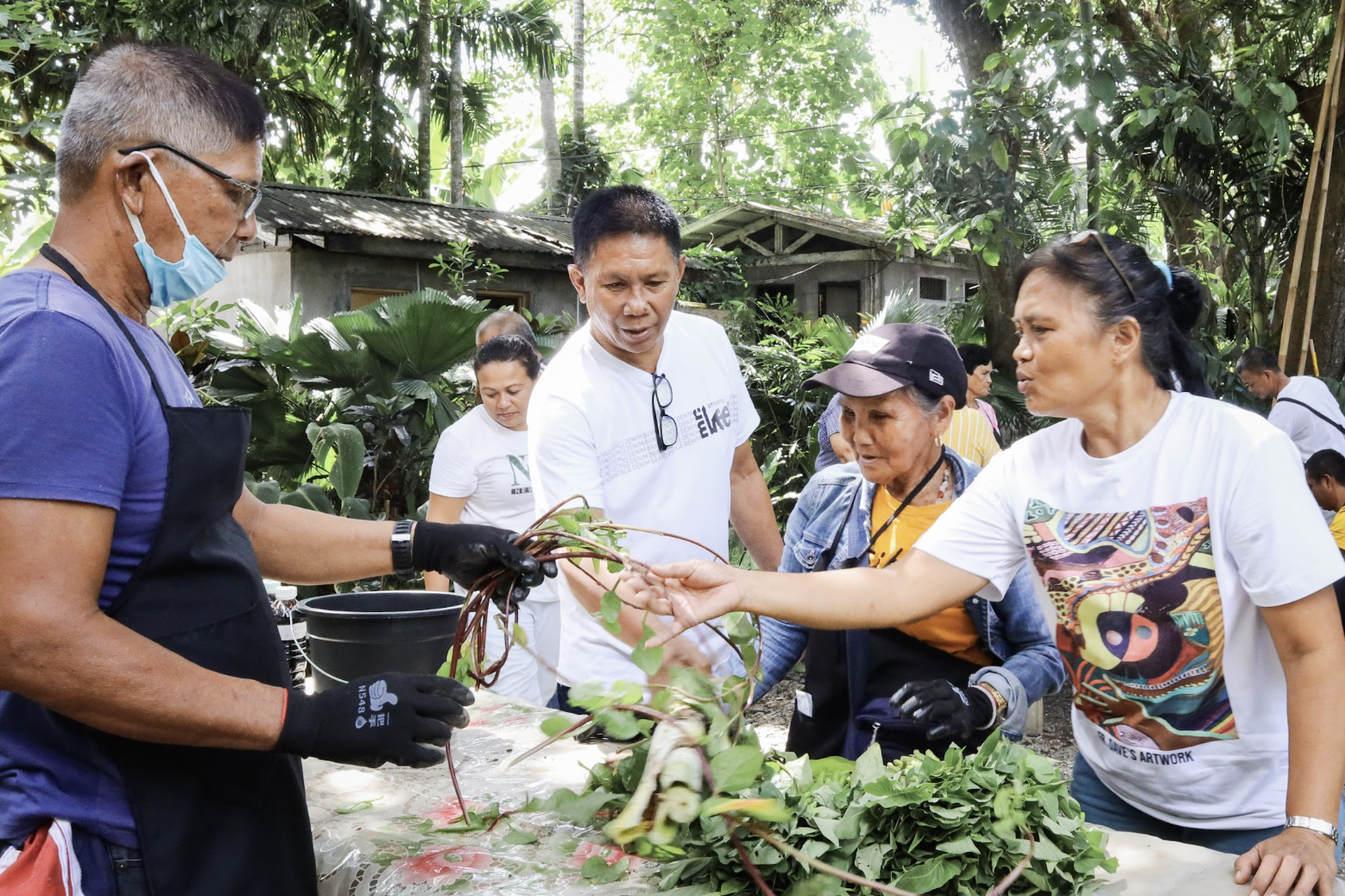ECONOMIC RIGHTS
Gardening for Change: Promoting backyard gardening for food security

By Elijah Macaspac
During the COVID-19 lockdown, a new wave of Filipino gardeners emerged. Many turned to this new hobby to utilize downtime at home, deal with the stress of the pandemic, and provide physical exercise.
Moreover, the vegetable gardens supplied them with readily available nutritious food to help deal with daily food consumption and expenses.
Until now, these backyard gardens continue to make fresh produce available and accessible for consumption. What started as a coping mechanism and interest in growing one’s food became a safeguard against the loss of food sources and income.
Growing your own food
A Social Weather Stations survey noted that the number of hungry Filipino families increased to three million in December 2022. With the increasing population, limited resources, and natural disasters, the country’s hunger crisis will inevitably intensify if not addressed.
Fortunately, backyard gardening is an innovative solution that can satisfy Filipinos’ growing interest in gardening and, at the same time, feed hungry communities. It is also purely organic and uses no chemical pesticides or artificial fertilizers, making the produce healthier.
Bernabe Baya, FARMCOOP technical staff and specialist in organic farming for over 16 years, stressed the significance of educating Filipinos on the relationship of food and health.
“The first thing that is affected in the food we eat is our health,” Baya said. “Every household should know how to plant and then learn how to do it organically to avoid toxic materials that people eat.”
In pursuing organic gardening, an in-depth understanding of the soil and watering schedule is crucial. A healthy garden starts with good soil, which is consequential if no artificial fertilizers or pesticides will be used. Products like organic compost, organic planters, enhanced compost, and organic blend topsoil can help the soil get the boost it needs.
Timely watering is also essential for a healthy garden. Pay close attention to how much water the plants and vegetables need, along with the weather’s changing patterns. Some weeds and plant diseases can thrive in dry soils, whereas others can spread in damp and humid environments.
Cultivating community gardens
Community gardens are common areas where individuals from different socioeconomic groups gather to establish, grow, and maintain a gardening space in their neighborhood. These are managed collectively for additional income, food source, and wellbeing of community members.
A great illustration is the Kaagapay sa Hanapbuhay learning exchange program held in Baler, Aurora, last May 3 to 5, 2023. The program included a training session on organic farming where participants also learnt the value of pursuing a healthier lifestyle.
It was facilitated by the Advocates for Human Rights in Aurora Province (AHRAP, Inc.) and Initiatives for Dialogue and Empowerment through Alternative Legal Services (IDEALS). Voice Global, a grant facility supporting underprivileged groups and rights-holders, funded it with a small grant through YGOAL’s Innovation Studio, a linking and learning initiative aiming to support grantee-led innovations beyond their Voice projects.
Baya facilitated the training with organic banana farmers from Mawab, Davao de Oro. They demonstrated the production of several organic fertilizers such as indigenous microorganisms (IMO), fish amino acid (FAA), and fermented plant juice (FPJ).
Most of the participants already take part in community gardens. Their gardens offer a steady source of food and income. Through the training, they can transition to organic methods and principles, which will help them address food security and health issues in their communities.
One of the participants is 20-year-old Christian Rufo, president of the Youth for Peace and Prosperity (YFPAP). YFPAP is an association in Aurora province that works to guide and provide income opportunities to the wayward youth through activities such as their community garden. Rufo mentioned that the organic farming training will help their association improve their community garden to provide healthier harvest and more income opportunities.
According to him, “Here in our province, the main source of income is farming…we have a community garden cultivated and shared by our youth. It helps young people like us not to go astray.”
Organic gardening is more than just a hobby. It promotes identifying what a food system actually ought to be. Through initiatives like the learning exchange program, Filipinos can reconsider the current methods of growing produce to prioritize keeping people and the planet healthy.
